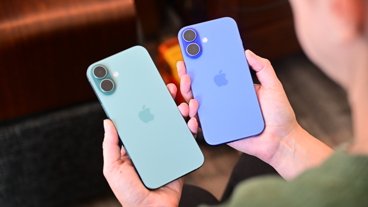The information comes from a U.S. Justice Department investigation that obtained communications between the two CEOs, according to Bloomberg. After rejecting the offer, Colligan reportedly told Jobs that what he proposed was "likely illegal."
The conversation took place in August 2007, just after the launch of the iPhone, and when Palm appointed Apple's former senior engineering VP, Jon Rubinstein, as executive chairman.
According to the communications between the two, Jobs told Colligan he was concerned that Rubinstein, as a former Apple employee, was recruiting existing Apple employees. "We must do whatever we can to stop this," Jobs reportedly said.
The documents say that Colligan told Jobs he considered the proposal, but ultimately decided against it.
"Your proposal that we agree that neither company will hire the other’s employees, regardless of the individual’s desires, is not only wrong, it is likely illegal," Colligan said to Jobs, according to the communications.
However, Jobs' specific proposal was not included in the communications. It was only referenced and discussed by the two executives.
"Jobs said Apple had patents and more money than Palm if the companies ended up in a legal fight, according to the communications," Bloomberg reported. Apple spokeswoman Katie Cotton declined to comment on the matter and Jobs did not return e-mails.
Since Rubinstein came on board, Palm has hired a number of former Apple employees. Also in 2007, Apple's former chief financial officer, Fred Anderson, joined as a general board member. Most recently Jeff Zwerner, a former creative director from 2001 to 2003 at the Cupertino, Calif., company, now serves as Palm's senior vice president.
The proposal from Jobs sounds similar to a informal agreement that was reportedly held between Apple and another rival, Google. Earlier this month, it was revealed that the two companies shared an agreement to not poach each others' workers while the Google CEO, Eric Schmidt, served on Apple's board. It is believed the unwritten agreement may have sparked an antitrust investigation from the U.S. Justice Department.
 Katie Marsal
Katie Marsal






-m.jpg)






 Christine McKee
Christine McKee
 Charles Martin
Charles Martin
 Mike Wuerthele
Mike Wuerthele
 Marko Zivkovic
Marko Zivkovic
 Malcolm Owen
Malcolm Owen


 William Gallagher
William Gallagher


-m.jpg)






47 Comments
I don't blame Colligan. I wouldn't have agreed to it either unless it was some legally binding non-compete clause in an employee's contract. Jobs was doing what was in the best interest of Apple (keeping them on top), and Colligan was doing what was in the best interest of his company -- even if it means taking employees from his competitor.
It happens in business all the time. Palm is in the weaker position, so it's expected that they would want to hire people from a more successful company.
Hell, Chrysler hired Toyota's Jim Press (formally the President of Toyota North America) back in 2007... not that it helped them out any
Palm has been recruiting Apple employees for a damn decade now. It's like they are playing Pokèmon. As soon as someone leaves Apple, they pop-up instantly with an offer. Now I don't know if this conversation between Steve and Palm actually happen, so I can't comment on that, but as far as Palm collecting folks from Apple, this is old news. With all the high rankings that Palms gives to the Apple recruits, you'd think they would be out of that slump.
I don't blame Colligan. I wouldn't have agreed to it either unless it was some legally binding non-compete clause in an employee's contract. Jobs was doing what was in the best interest of Apple (keeping them on top), and Colligan was doing what was in the best interest of his company -- even if it means taking employees from his competitor.
It happens in business all the time. Palm is in the weaker position, so it's expected that they would want to hire people from a more successful company.
Hell, Chrysler hired Toyota's Jim Press (formally the President of Toyota North America) back in 2007... not that it helped them out any
Exactly, as I just stated a while ago. This has been happening for the longest, not to say that the moves aren't wise ones, but no results as of yet, maybe a little bit from the buzz with the Palm Prē, but other than that, nothing.
If these types of agreements are illegal, is there any difference between agreeing not to hire anyone coming from the other company vs agreeing not to actively recruit them (cold calling)? The difference would be that in the 2nd example the employee would be free to look for work at the other company if they chose to, but in the 1st they would not.
Then again, I don't see this as any worse than a union saying you can't work here unless you join the union first. Either case the potential employee is being interfered with in seeking employment.
If these types of agreements are illegal, is there any difference between agreeing not to hire anyone coming from the other company vs agreeing not to actively recruit them (cold calling)? The difference would be that in the 2nd example the employee would be free to look for work at the other company if they chose to, but in the 1st they would not.
Then again, I don't see this as any worse than a union saying you can't work here unless you join the union first. Either case the potential employee is being interfered with in seeking employment.
I think there's a tremendous difference between "refusal to hire" and "refusal to recruit". It's likely the DOJ would consider them quite different as well but then again, I'm not in the losing business of predicting what the government thinks.
As for unions, they seem to be exempt from anything involving anti-trust laws.